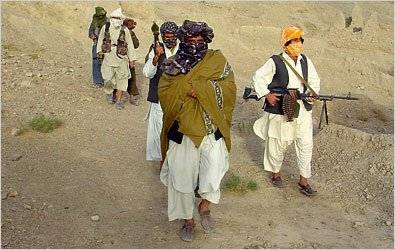Violence in Afghanistan will escalate in 2009 unless the US and other countries move quickly to counter an intensifying Taliban insurgency with troops and assistance, the top US military officer said on Thursday. "The trends, across-the-board, are not going in the right direction," Navy Adm. Mike Mullen, chairman of the Joint Chiefs of Staff, told reporters. Afghanistan, which has seen violence soar over the past two years, needs not only military assistance from the West but also major infusions of economic, diplomatic and political aid, according to Mullen. "It's been very, very tough fighting this year and it will be tougher next year unless we (develop) a way to get at all aspects of the challenge," he said. "It's the full spectrum -the political piece, the diplomatic piece, the economic piece, in addition to the security piece -that's got to improve dramatically."But Mullen said the US, NATO and other countries have failed so far to forge the kind of strategic unity necessary to stem the rise in violence. "One of the big struggles we have is developing a comprehensive approach to all of this," the admiral said. "We're just not there." "I don't think it's going to turn around overnight. So I would anticipate next year being a tougher year," he added. The chairman was speaking at a meeting with newspaper reporters hosted by the Christian Science Monitor. Earlier on Thursday, the New York Times said a new U.S. intelligence report has concluded that Afghanistan is spiraling downward amid doubts about whether the Kabul government can stem the Taliban's rise.The US has 33,000 troops in the country, 13,000 of them under NATO command. All told, Mullen said there are now about 64,000 Western soldiers in Afghanistan. The United States is in the process of sending nearly 6,000 more: an Army brigade and a Marine battalion that should reach the country by next February. The United States has also stepped up pressure on NATO allies and others to contribute more forces.US Army Gen. David McKiernan, NATO's top commander in Afghanistan, has asked for an additional deployment that could total as many as 15,000 more U.S. troops on top of those already earmarked by the Pentagon. But those forces are unlikely to be available until next spring or summer because of ongoing U.S. commitments in Iraq. Until then, Mullen said the Pentagon is moving to provide more unmanned aircraft, helicopters and other "enablers" to bolster the effectiveness of the existing force."We're going to push as many enablers there as we possibly can, as rapidly as we can," he said without providing specifics. "You've got to have enough security to be able to turn it so that the people feel secure -- not unlike what's happened in Iraq -- so that the other things can turn around," he said. But the draft of a new classified National Intelligence Estimate, or NIE, says Afghanistan is already suffering an accelerated breakdown of central authority due to rising violence and official corruption, the New York Times said. The Times said the NIE is set to be finished after the November elections and will be the most comprehensive U.S. assessment in years on Afghanistan. An NIE is a formal document that reflects the consensus judgments of all 16 U.S. intelligence agencies, often based on separate intelligence reports previously given to policymakers.
Saturday, April 20, 2024
Mullen sees Afghanistan worsening into next year

Policitising Tragedy
April 20, 2024
Tehran to Rafah
April 20, 2024
A New Leaf
April 20, 2024
A Tense Neighbourhood
April 19, 2024
Dubai Underwater
April 19, 2024
Dangers of Deepfakes
April 20, 2024
Feudalism
April 20, 2024
Kite tragedy
April 19, 2024
Discipline dilemma
April 19, 2024
Urgent plea
April 19, 2024
ePaper - Nawaiwaqt
Advertisement
Nawaiwaqt Group | Copyright © 2024





